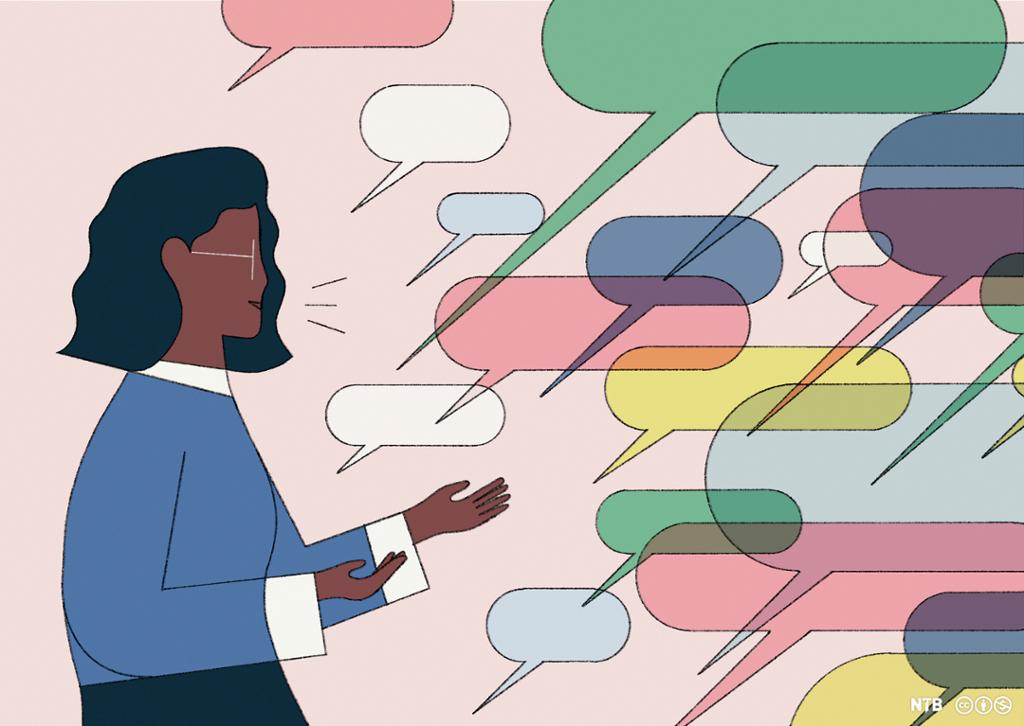Code Switching

'Code' is a neutral term that can be used to mean language or a variant of a language. When people speak several languages, it is not uncommon to switch between them. When a speaker code switches, they usually have an expectation that the person they are speaking to will understand what is said.
In Norway, people often use English words in their conversations. It is far less common to add for example Spanish, German, or French words, even though most Norwegians have studied at least one of these languages in school.
Someone with a minority background may use words from their language when speaking the majority language. This may be a way to establish and signal identity and help identify others who share the same background.
Code switching also occurs when someone switches between varieties of a language. We can code switch between dialects, for example when someone from Texas switches to a New York accent. We can also switch between sociolects, for example when someone who uses quite formal language switches to teen slang.
To express ourselves more precisely or more clearly: One reason for code switching is that we feel that the words available to us in one language do not quite express what we want to say. Therefore, in order to express ourselves clearly, we switch languages. When a new invention, phenomenon, or fashion comes along there may not be a suitable word for it in our own language yet. Then code switching is the best way to make ourselves understood.
To make it easier for someone else to understand us: Code switching can be used to help others understand what we say more easily. We may for example add words we know from our conversation partner's language, or, if we are speaking the same language we may switch to the other person's dialect to aid understanding.
To indicate solidarity or a shared identity: We code switch to signal to the other person that we have something in common: we both share these languages and understand each other. Wanting to share a secret can be another reason to code switch: by changing code, we exclude the people who will not understand what we say.
To create distance: It can also be used to create distance, for example if a teenager in mid conversation with a parent switches to teen slang: this can be a way to illustrate the point 'you don't understand me'.
To express shock, surprise, or anger: Code switching also often happens if we are suddenly startled, scared, or surprised while speaking a foreign language. When we are put under pressure, we easily turn to our native tongue to express ourselves fully. We may also get into the habit of using expletives and swearwords from other languages. Some people prefer to swear in a foreign language, knowing that profanities are perceived as less offensive or even comical when spoken in a foreign language.
Because we are not fluent in the language we are speaking: Code switching is sometimes a consequence of not being fully fluent in a language. We resort to adding words from other languages in order to be understood. This kind of involuntary code switching is usually called code mixing, however, the two terms are often used as synonyms.
Code switching is a way to exploit all of our language resources in communication. When we talk to others, most of what we say is not meant to be strictly informative. We create relationships and maintain these through conversation. In our everyday lives communication is primarily social interaction. Code switching is an important tool in our communication toolbox.